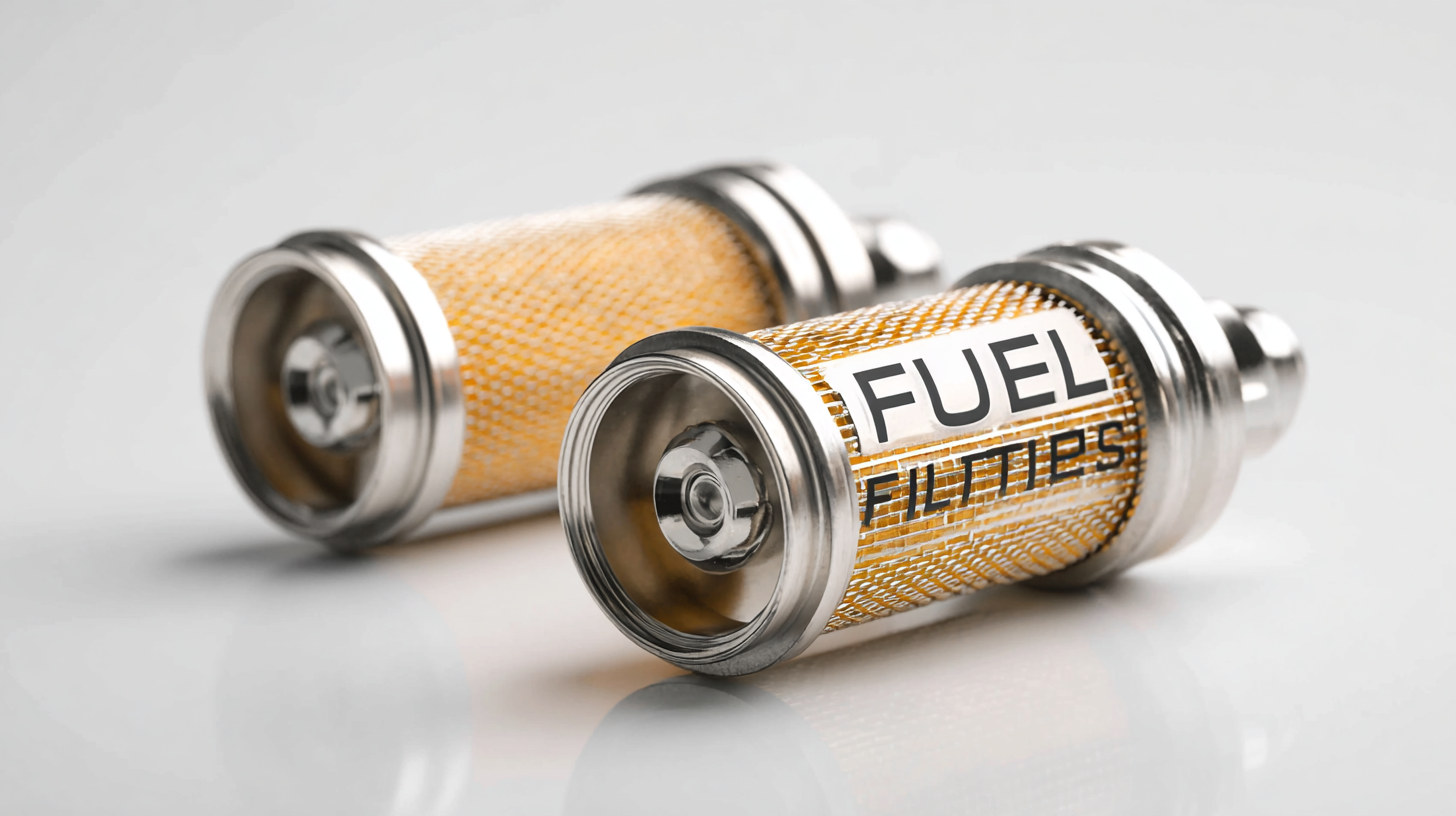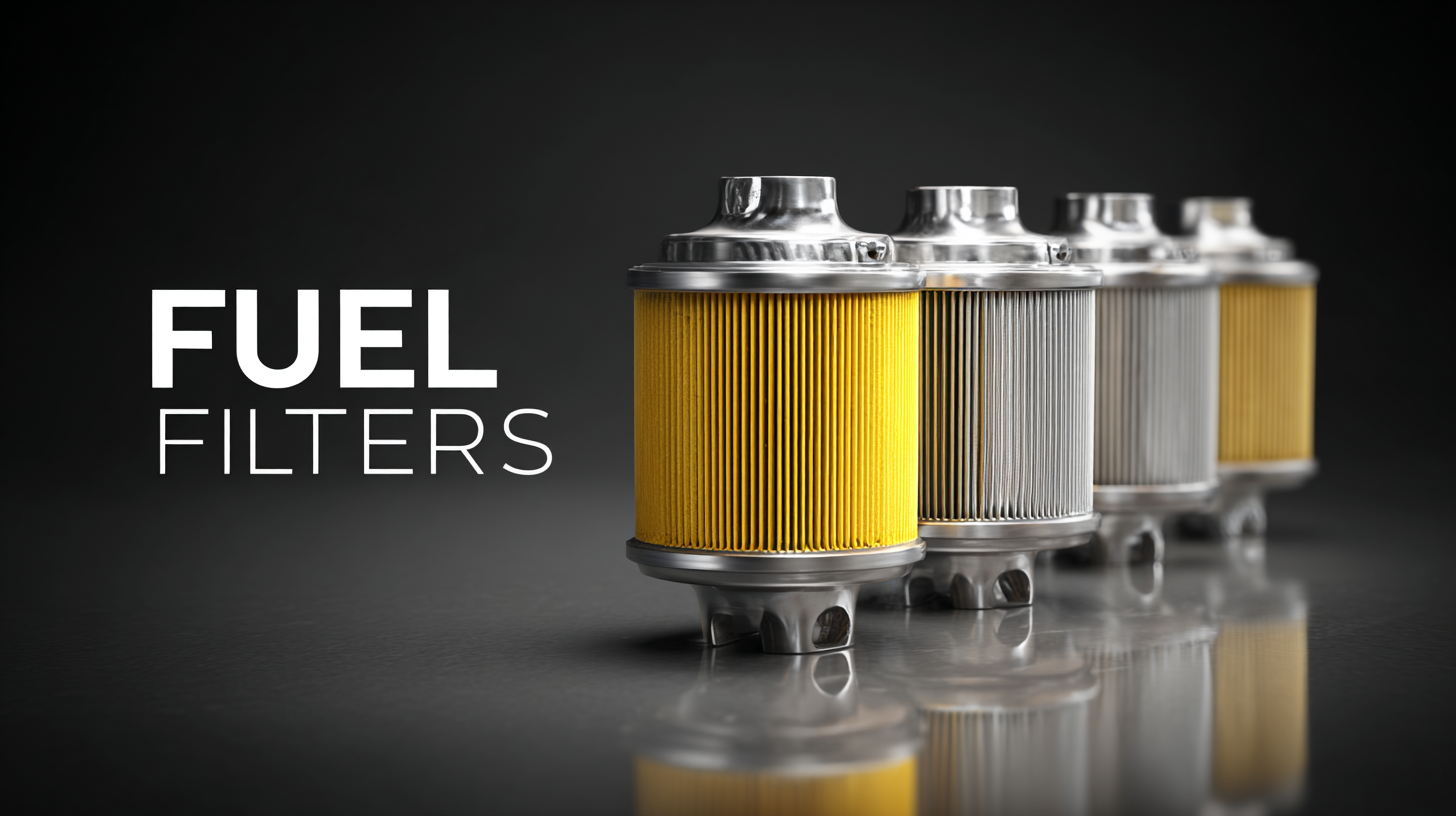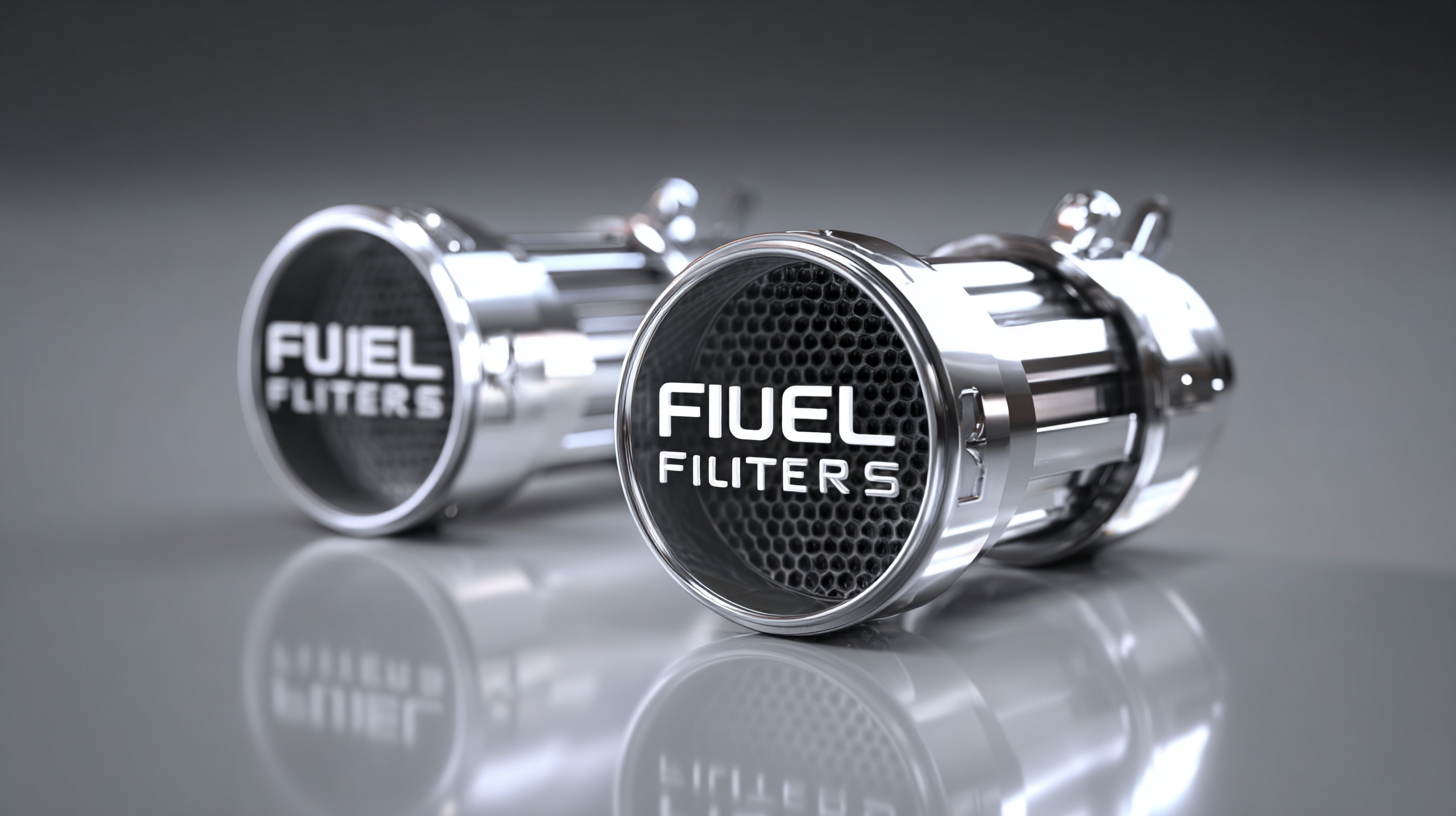
Future Insights for Global Buyers on Best Fuel Filters in 2025 and How to Choose the Right One
As we look towards the future of automotive technology, the importance of choosing the right fuel filters cannot be overstated. In 2025, global buyers will face an array of options from leading manufacturers, each vying for attention in a competitive marketplace. The demand for high-quality fuel filters is driven by the need for enhanced engine performance, fuel efficiency, and overall vehicle reliability.

This blog will explore the top fuel filter manufacturers recognized for their innovative solutions, quality assurance, and global reach. We will also provide insights into how buyers can select the most suitable fuel filter for their specific needs, ensuring that they not only meet regulatory standards but also contribute to a sustainable future in transportation. Join us as we unlock expert recommendations and key considerations for navigating the evolving landscape of fuel filters in 2025.
The Evolution of Fuel Filter Technology: What to Expect by 2025
As we look toward 2025, the evolution of fuel filter technology is set to undergo significant transformation driven by advancements in materials science and filtration engineering. According to a report by MarketsandMarkets, the fuel filtration market is projected to grow from $3.1 billion in 2020 to $4.7 billion by 2025, reflecting a compound annual growth rate (CAGR) of 8.4%. This growth is primarily fueled by the increasing demand for cleaner fuels and stricter emissions regulations worldwide.

Innovation in fuel filter design will focus on enhancing filtration efficiency while reducing maintenance costs. For instance, the introduction of nanotechnology in fuel filter components promises to improve dirt-holding capacity and retention rates, as suggested by research from the Society for Automotive Engineers (SAE). Furthermore, the integration of smart technology, such as sensors that provide real-time monitoring of filter condition, is expected to become more prevalent. These advancements will not only extend the lifespan of fuel filters but also provide drivers with critical information regarding their vehicle's performance and health, ensuring that global buyers are empowered to make informed decisions when selecting the right fuel filter.
Key Trends in Fuel Filter Materials for Enhanced Performance and Durability
As we approach 2025, the demand for high-performance fuel filters is projected to surge, driven by advancements in automotive technologies and increasing environmental regulations. A recent report from the Global Industry Analysts suggests that the global fuel filter market will reach approximately $4.5 billion by 2025, with a notable shift towards materials that enhance both performance and durability.
Key trends in fuel filter materials are emerging, with manufacturers increasingly opting for synthetic and composite materials over traditional alternatives. Synthetic fibers, for example, are being praised for their superior filtration efficiency, capable of trapping finer particles that can lead to engine wear and inefficiencies. Moreover, composite materials offer robust resistance to high temperatures and corrosive fuels, significantly extending the lifecycle of filters. Research from the Society of Automotive Engineers indicates that filters made from advanced materials can improve engine performance by up to 15%, making the selection of the right fuel filter critical for buyers aiming for longevity and efficiency in their vehicles.
In addition, sustainability is becoming a vital consideration, with many manufacturers exploring biodegradable options. As consumers grow more environmentally conscious, the shift towards eco-friendly fuel filters is not only a trend but a necessity in the evolving automotive landscape. Reports indicate that by 2025, over 30% of fuel filters are expected to incorporate sustainable materials, reflecting a substantial transformation in consumer preferences and manufacturer practices.
Future Insights for Global Buyers on Best Fuel Filters in 2025
| Material | Durability (years) | Filtration Efficiency (%) | Temperature Resistance (°C) | Applications |
|---|---|---|---|---|
| Polyethylene | 5 | 90 | 60 | Passenger vehicles |
| Stainless Steel | 10 | 95 | 100 | Heavy machinery |
| Fiberglass | 8 | 92 | 80 | Motorboats |
| Polypropylene | 7 | 89 | 70 | Diesel engines |
| Ceramic | 12 | 98 | 120 | Aerospace |
Data-Driven Insights on Fuel Efficiency Improvements with Advanced Filters
As the automotive industry looks ahead to 2025, one of the most significant trends is the advancement of fuel filter technology aimed at enhancing fuel efficiency. The development of advanced filters, which utilize cutting-edge materials and engineering practices, is expected to lead to marked improvements in how engines utilize fuel. These enhanced filters not only remove contaminants more effectively but also optimize fuel flow, allowing for better combustion and increased power output.
Data-driven insights reveal that modern fuel filters are designed to work synergistically with engine management systems. By providing real-time information regarding fuel quality and flow rates, these filters enable adaptive performance adjustments. Consequently, vehicles equipped with these advanced systems can achieve significant reductions in fuel consumption, helping buyers minimize their environmental impact while also saving on operational costs. This intersection of technology and efficiency underscores the importance of choosing the right fuel filter, ensuring that it aligns with both vehicle requirements and the broader goal of sustainable driving.
How to Evaluate Fuel Filter Brands: Key Metrics and Consumer Ratings
When evaluating fuel filter brands, it’s crucial to consider several key metrics and consumer ratings that reflect performance and reliability. Recent industry reports indicate that filtration efficiency is a top priority, with leading brands achieving upwards of 99% contaminant removal rates. Consumers should look for filters that meet or exceed this benchmark, as it directly impacts engine longevity and performance.
In addition to efficiency, it's essential to assess the durability of the fuel filter. Studies show that filters with robust construction, like those made from stainless steel, tend to have a longer lifespan and can withstand varying environmental conditions. Check for brand warranties and consumer feedback; data suggests that brands providing longer warranties often yield higher satisfaction ratings.
Tips: When selecting a fuel filter, pay attention to user reviews detailing real-world experiences, as high consumer ratings can indicate reliability. Additionally, prioritize brands that offer comprehensive technical support and resources, ensuring you have access to assistance when needed. Regularly researching market trends and brand innovations can also help you stay informed about the best options available in 2025.
The Impact of Regulations on Fuel Filter Standards and Buyers’ Choices in 2025
As we look towards 2025, the regulatory landscape is poised to significantly influence fuel filter standards and the choices buyers make. Stricter emissions regulations will likely shape the development and specifications of fuel filters, which are critical components in maintaining vehicle performance and compliance. Industry reports indicate that for diesel engines, which were once favored for their efficiency, the introduction of more rigorous emissions standards may lead to a decline in their market share. This shift necessitates that buyers consider not only the performance but also the regulatory compliance of fuel filters when making purchasing decisions.
Moreover, the expiration of electric vehicle (EV) tax credits in 2025 further complicates the environment for buyers. With the increase in electric vehicle adoption, traditional fuel types, including diesel and petrol, might face higher scrutiny regarding their environmental impact. According to market analysis, this evolving scenario means that fuel filters designed for traditional combustion engines will need to adapt to meet new regulatory standards, which could influence their performance and longevity. Buyers will need to assess product specifications carefully, ensuring they choose fuel filters that not only support their vehicle's efficiency but also align with the tightening regulatory framework.

